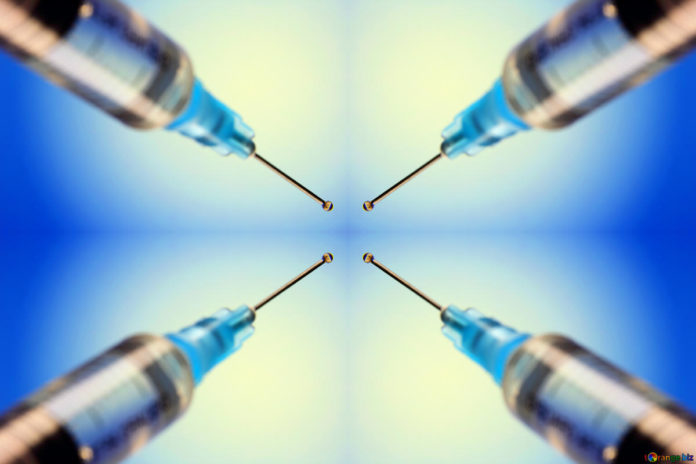
The first COVID-19 vaccine to reach phase 1 clinical trial has been found to be safe, well-tolerated, and able to generate an immune response against SARS-CoV-2 in humans
This trial in 108 healthy adults published in The Lancet demonstrated encouraging results after 28 days – the final results will be evaluated in six months. Further trials are needed to tell whether the immune response it elicits effectively protects against SARS-CoV-2 infection.
“These results represent an important milestone. The trial demonstrates that a single dose of the new adenovirus type 5 vectored COVID-19 (Ad5-nCoV) vaccine produces virus-specific antibodies and T cells in 14 days, making it a potential candidate for further investigation”, said researcher Professor Wei Chen from the Beijing Institute of Biotechnology in Beijing, China.
The creation of an effective vaccine is seen as the long-term solution to controlling the COVID-19 pandemic. Currently, there are more than 100 candidate COVID-19 vaccines in development worldwide.
The new Ad5 vectored COVID-19 vaccine evaluated in this trial is the first to be tested in humans. It uses a weakened common cold virus (adenovirus, which infects human cells readily but is incapable of causing disease) to deliver genetic material that codes for the SARS-CoV-2 spike protein to the cells. These cells then produce the spike protein, and travel to the lymph nodes where the immune system creates antibodies that will recognize that spike protein and fight off the coronavirus.
analyses showed that 28 days after vaccination, the majority of recipients showed either a positive T cell response or had detectable neutralising antibodies against SARS-CoV-2
The trial assessed the safety and ability to generate an immune response of different dosages of the new Ad5-nCoV vaccine in 108 healthy adults between the ages of 18 and 60 years who did not have SARS-CoV-2 infection. Volunteers were enrolled from Wuhan, China, and assigned to receive either a single intramuscular injection of the new Ad5 vaccine at a low dose (5 × 1010 viral particles/0·5ml, 36 adults), middle dose (1×1011 viral particles/1.0ml, 36 adults), or high dose (1.5 x 1011 viral particles/1.5ml, 36 adults).
The researchers tested the volunteers’ blood at regular intervals following vaccination. The vaccine candidate was well tolerated at all doses with no serious adverse events reported within 28 days of vaccination. The most common adverse reactions were mild pain at the injection site reported in over half (54%, 58/108) of vaccine recipients, fever (46%, 50/108), fatigue (44%, 47/108), headache (39%, 42/108), and muscle pain (17%, 18/108). However these adverse reactions persisted for less than 48 hours.
Within two weeks of vaccination, all dose levels of the vaccine triggered some level of immune response in the form of binding antibodies (that can bind to the coronavirus but do not necessarily attack it.
After 28 days, most participants had a four-fold increase in binding antibodies (35/36, 97% low-dose group; 34/36 (94%) middle-dose group, and 36/36, 100% in high-dose group), and half (18/36) of participants in the low- and middle-dose groups and three-quarters (27/36) of those in the high-dose group showed neutralising antibodies against SARS-CoV-2.
Importantly, the Ad5-nCoV vaccine also stimulated a rapid T cell response in the majority of volunteers, which was greater in those given the higher and middle doses of vaccine, with levels peaking at 14 days after vaccination (low-dose group (30/36; 83.3%), medium (35/36, 97.2%), and high-dose group (35/36, 97.2%) at 14 days).
Further analyses showed that 28 days after vaccination, the majority of recipients showed either a positive T cell response or had detectable neutralising antibodies against SARS-CoV-2 (low-dose group 28/36, 78%; medium-dose group 33/36, 92%; high-dose group 36/36, 100%).
The authors, however noted that both the antibody and T-cell response could be reduced by high pre-existing immunity to adenovirus type 5 (the common cold virus vector/carrier).
The main limitations of the trial are its small sample size, relatively short duration, and lack of randomised control group. A randomised, double-blinded, placebo-controlled phase 2 trial of the Ad5-nCoV vaccine has been initiated in Wuhan to determine whether the results can be replicated, and if there are any adverse events up to 6 months after vaccination, in 500 healthy adults.












